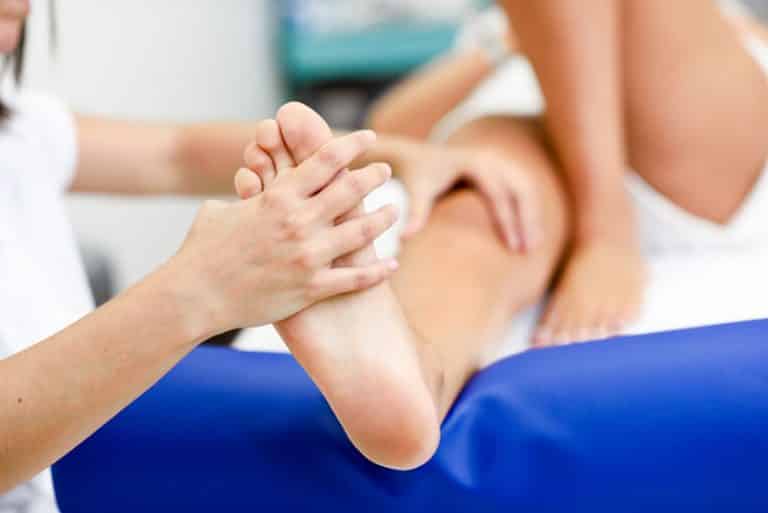PODIATRY
ESSENTIAL FOOT CARE & ADVICE TO KEEP YOU MOVING
How Can A Podiatrist Benefit You?
A podiatrist is focused with the prevention, diagnosis, treatment and rehabilitation of conditions of your feet, ankles and lower leg. They will identify and address problems with the way you walk and some common problems we encounter in people with a neurological condition such as in-grown toenail, footdrop, and spasticity in muscles of the toes, foot and ankle.
Additionally, they can also give you advice on athletic footwear and help with occupational health and safety issues, since some occupations involve people standing on hard surfaces for long periods of time, they are likely to cause foot problems.
Improved Mobility For You
Podiatry can help to improve your mobility and independence through the prevention and management of foot problems. The conditions that a podiatrist will treat can include bone and joint disorders, muscular problems and neurological or circulatory diseases.
A podiatrist will not just look at your foot, but they will carry out a bio-mechanical assessment to see how your gait can be impacting other parts of your body, such as your hips.
Jack Salcedo
Podiatrist
(BPod)

Area of Interest
Our Podiatrist
- Foot injuries
- Chronic heel pain (Plantar fascitis, heel spurs)
- Shin pain (Shin splints)
- Achilles tendonitis
- Posterior tibial tendon dysfunction
- Forefoot pain (Morton’s Neuroma, plantar plate tears, Metatarsalgia)
- Nerve pain
- Stress fracture and fracture management
- Ingrown toenails and thickened, mycosis nails (fungal nails)
- Muscular tightness, imbalance or weakness
- Bunion
- Plantar warts
- Children’s foot problem
"Your feet will bring to where your heart is."
Irish Proverb


